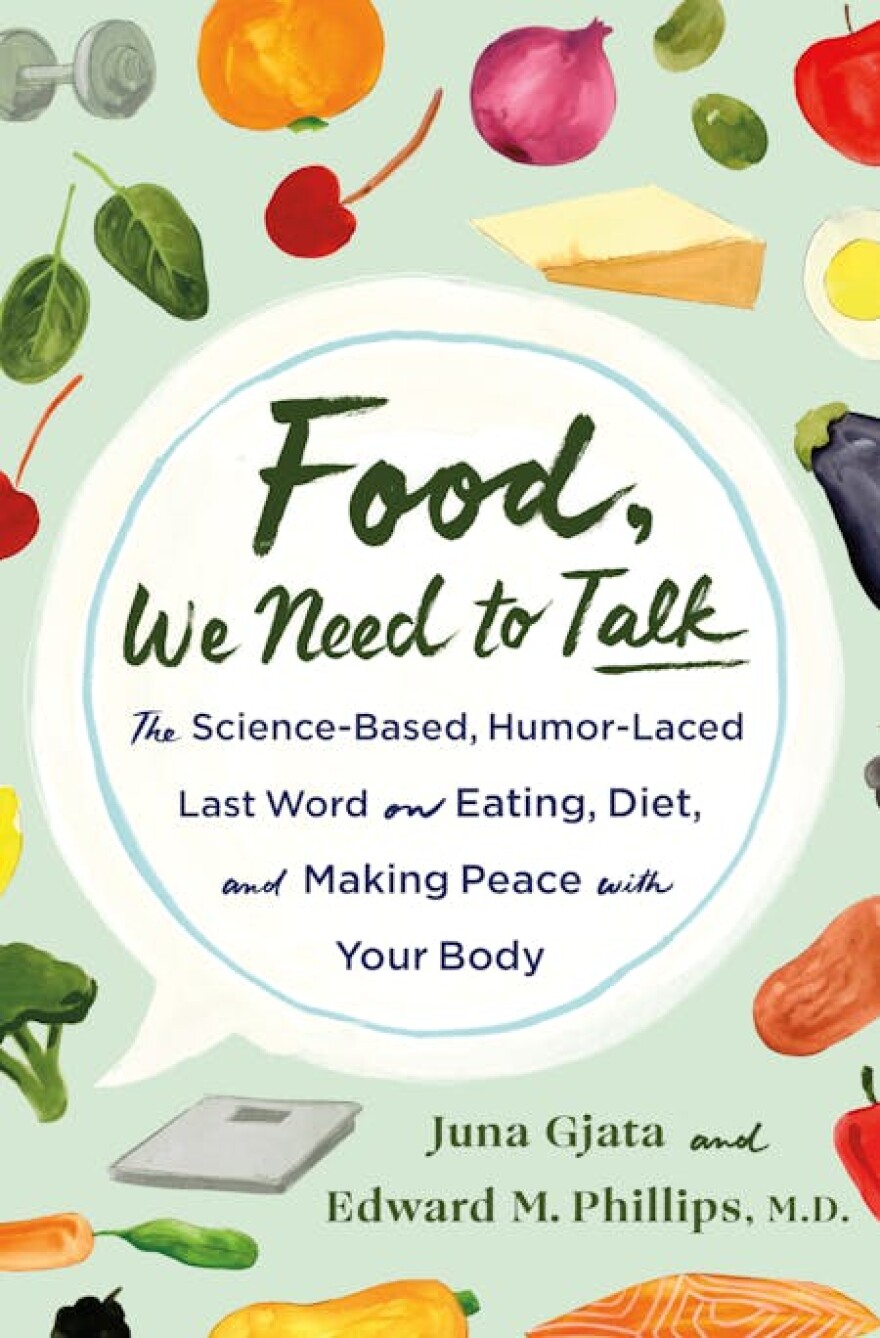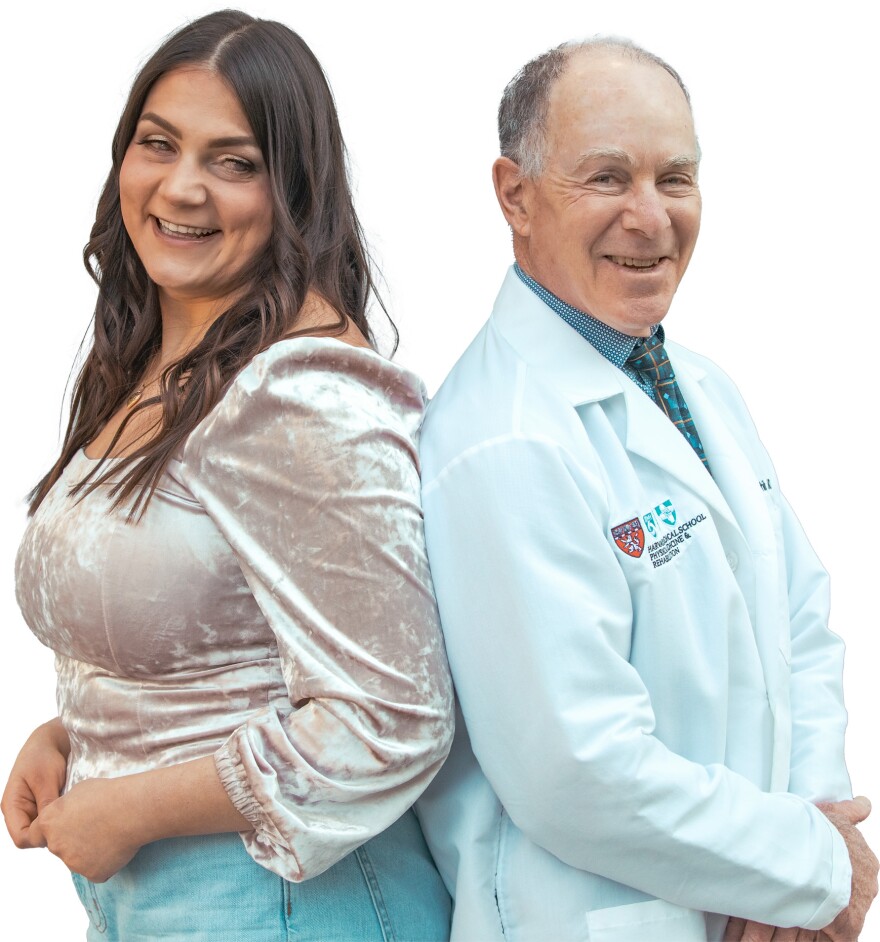There are so many rabbit holes you can go down when trying to look into health and nutrition. Should I eat keto? Join a different gym? Try intermittent fasting? Go plant-based?
For Juna Gjata, food and body weight was something she struggled with for a long time. But after doing a deep dive into research for herself, she discovered that the science itself wasn’t complicated, or contested. The problem she found is that the right things weren’t communicated very well.
So, Gjata teamed up with Harvard Medical School associate professor Dr. Eddie Phillips and together they’ve been hosting the WBUR podcast, Food, We Need to Talk. Since 2019, they’ve shared a science-based, humor-laced approach to health and fitness.
Gjata and Phillips recently published a book of the same name and continue to get the word out on the basics of nutrition, exercise, metabolism, health and making peace with your body.

Gjata recalls that her health journey began early in her life. "I always grew up with two sisters that were pretty thin," she explains. "So I was never overweight growing up, I just always wanted to be thinner." When she didn't see her desired results, she would impose restrictions on herself like only eating 1,000 calories per day. This led to binge eating which led to further weight gain and became a cycle that eventually lead to severe eating disorders in college.
"A lot of dieting sort of starts off casual, but then with certain individuals it does get taken to another level and it can become a diagnosable eating disorder," Gjata notes. "And so then the thing that kind of helped pull me out of it was discovering lifting weights at the gym."
Before she started weightlifting, Gjata said the gym had only been a way to try and get smaller. However, when she started to feel stronger it boosted her confidence.
"That kind of shifted my whole mentality around. Food was always supposed to be restricted and exercise is only to burn calories," she recalls. "Once I had that big mindset shift, I started to read a lot more literature in nutrition and exercise, and discovered that it really wasn't that controversial or convoluted as it seems online. And that's why I reached out to WBUR and said like, 'Guys, you should be talking about this research because we need an authoritative source of health information that's not people on Instagram.'"
Phillips says he and his wife always identified themselves as clean eaters, following various food trends, taking vitamins, etc. However, when their kids came along, those learned behaviors developed into orthorexia and then lapsed into anorexia for their middle child.
"Even though my wife and I were trained physicians, this is something that we were seemingly powerless to help with and had contributed to in some way," says Phillips.
Phillips had done a previous exercise podcast at WBUR called The Magic Pill before he was teamed up with Gjata. "We have a quasi-parental relationship in which the fun part is I can talk to Juna about things that are so emotionally charged and get a straight response rather than trying to dance on that third rail of emotions with my own kids, so that became the podcast and then the book."
From topics like the history of dieting that started in the Victorian age targeted to men, to the relationship between sleep and weight, weight stigma and more, Gjata and Phillips use their unique, complementing perspectives to help others change the way they feel — and learn — about the endless topics surrounding nutrition and exercise.
One of the biggest takeaways that Gjata got from her experience was to try and see the whole picture. "Weight is not necessarily the best measure of your health. So, if you start making better health decisions like you think you're eating better and you're exercising, but the scale doesn't move, that doesn't mean you failed," she notes. "You're still vastly improving your health, even if you don't lose any weight.
Phillips adds, "Understand your body is doing its best just. Feed it, nourish it properly and it can be something that you'll be at peace with."
_







